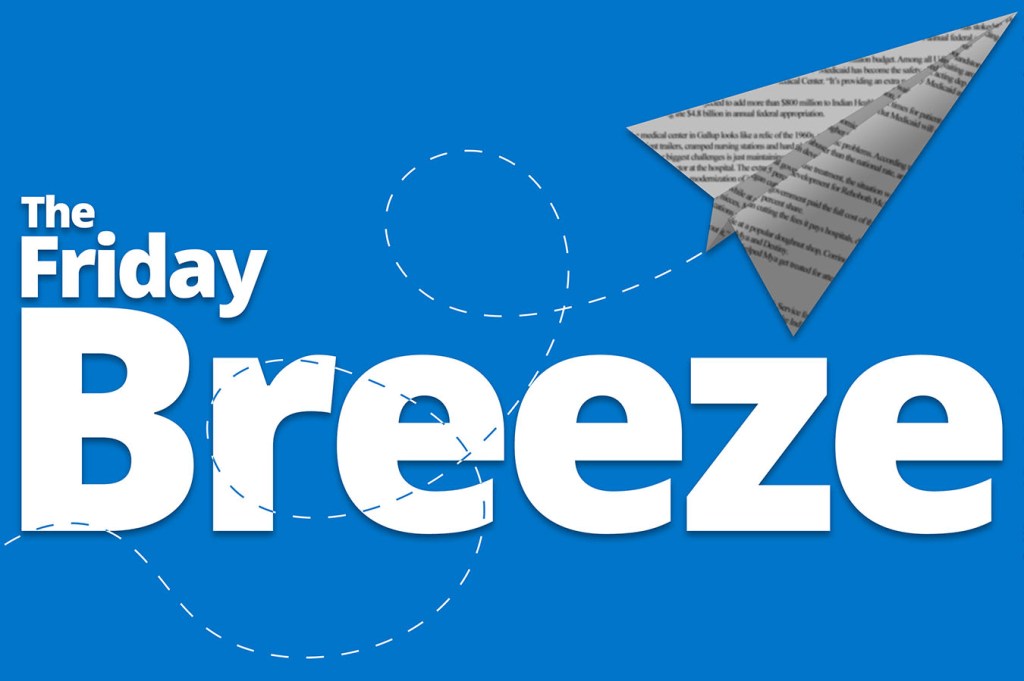Your wonderfully entertaining compiler of “The Friday Breeze,” Brianna Labuskes, is off today, so I’m jumping in to keep you abreast of this week’s vital health care news. Here’s what I found most fascinating, some of it far away from the headlines.
Let’s dive into my “Department of Health Studies,” where I found several worthy of your time.
First, the scourge of fentanyl drug overdoses is rising most sharply among African-Americans. The CDC’s National Center for Health Statistics, which did the study, said the synthetic opioid is also a factor in the rise of death rates across other demographic groups.
The Washington Post: Fentanyl Drug Overdose Deaths Rising Most Sharply Among African Americans
A group of academics studying anti-vaccination posts on Facebook found that it’s not just the unfounded fear of autism driving the sentiment. While 86 percent of the posters were women, their motivation varied from conspiracy — as in poliovirus does not exist and pesticides caused the clinical symptoms of polio — to a belief in alternative medicine — eating yogurt cures human papillomavirus.
Science Direct: It’s Not All About Autism: The Emerging Landscape of Anti-Vaccination Sentiment on Facebook
Many news outlets reported on a study on the Apple Watch and its heavily promoted ability to detect an irregular heartbeat. The Apple-funded study, which has not been published or peer-reviewed, concluded the watch works.
CNN: Apple Watch App Could Detect Life-Threatening Irregular Heartbeat, Study Says
Moving on to data, the Robert Wood Johnson Foundation issued its county health rankings this week. It’s a user-friendly display of a matrix of health indicators that lets you spot the country’s trouble spots. This year’s report, the foundation explains, tried to get at the relationship of the cost of housing to health. “The research reveals that in the most segregated counties nearly one in four black households spends more than half their income on housing, compared with one in 10 white households.”
Robert Wood Johnson Foundation: How Healthy Is Your Community?
Doctors will like this one: a study comparing hospital CEO salaries — nonprofit hospital CEOs, mind you — with physician salaries. CEO salaries are five times higher than surgeons’ salaries, up from a ratio of 3-to-1 only 10 years earlier.
Healthcare Dive: CEO Salaries at Nonprofit Hospitals Up 93% Since 2005
Drug prices remain the hot topic this week in health care news. The BBC looked at the high drug prices in the U.S. compared with the prices in Great Britain and chortled a bit.
BBC News: The Human Cost of Insulin in America
Elisabeth Rosenthal, the editor-in-chief of KHN, wrote an analysis in The New York Times of Eli Lilly’s baffling public relations move to cut insulin prices in the U.S. with an “authorized generic.” She writes, “It is, perhaps, a sign of how desperate Americans are for something — anything — to counteract the escalating price of drugs that Lilly’s move was greeted with praise rather than a collective ‘Huh?’”
The New York Times: Why Should Americans Be Grateful for $137 Insulin? Germans Get It for $55
While we are on the topic of the high cost of health care, the federal government’s General Accountability Office issued a report on air ambulances and the sky-high bills the companies send patients. (KHN featured the problem in its “Bill of the Month” series and the St. Louis Post-Dispatch did some excellent pieces on the problem last year.) Bob Herman of Axios noted that the report found that the median price of medical helicopter transport in 2017 was $36,400.
Government Accountability Office: Air Ambulance: Available Data Show Privately-Insured Patients Are at Financial Risk
I’d be remiss if I didn’t mention a fabulous article by another KHN staffer, Fred Schulte, who with Erika Fry of Fortune magazine wrote about the mess that electronic health records have become. It’s long, but so good at illuminating a problem that is largely invisible to patients.
Fortune: Death by a Thousand Clicks: Where Electronic Health Records Went Wrong
The Baltimore Sun produced a great graphic, a live map of sewage pollution in the city. The accompanying article says: “More than 14 million gallons of sewage-tainted water has washed into Baltimore streams over the past two months, but city officials haven’t alerted the public of the contamination.”
The Baltimore Sun: Baltimore Launches Live Map of Sewage Pollution — and Temporarily Stops Alerting the Public to Contamination
Enjoy the weekend with this selection of things to read.


